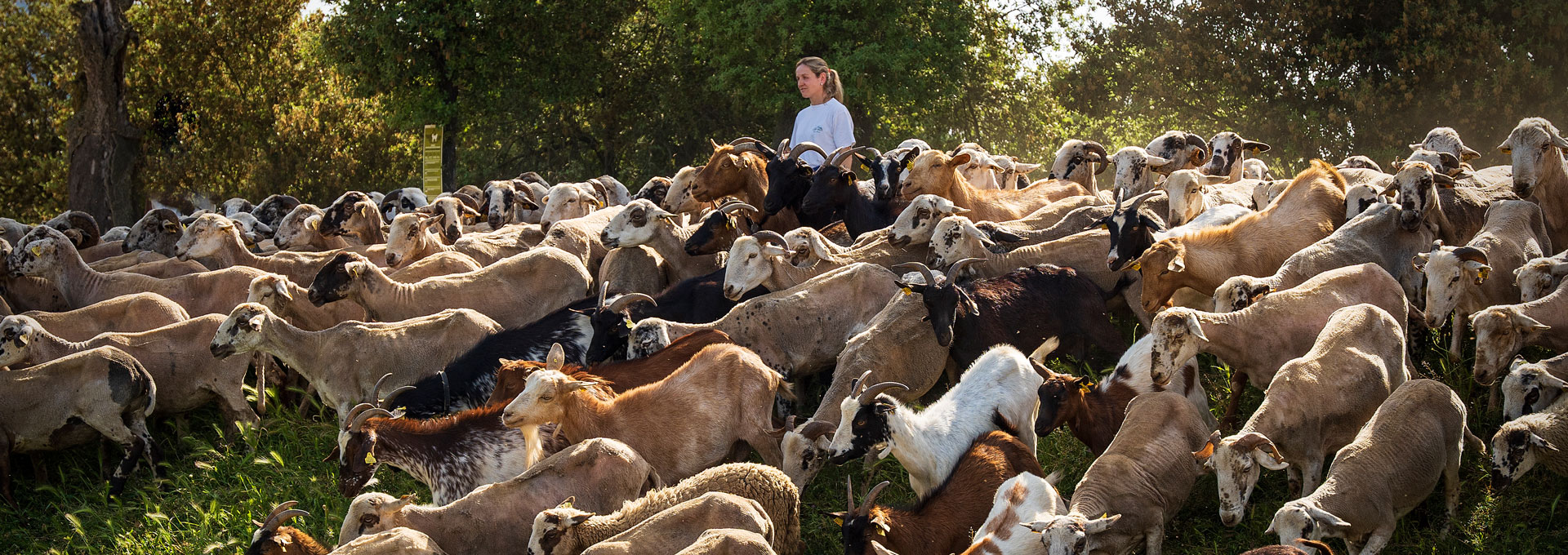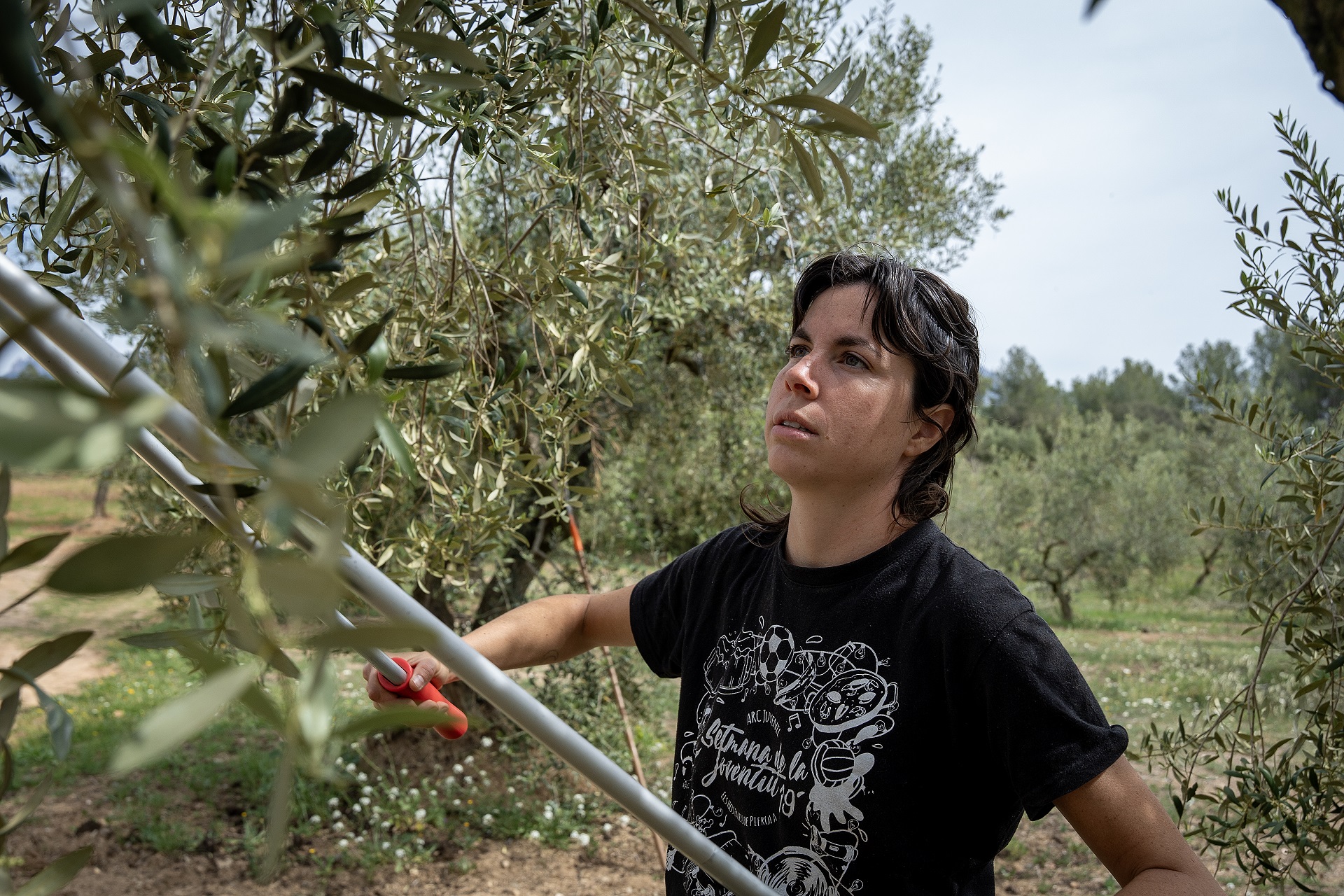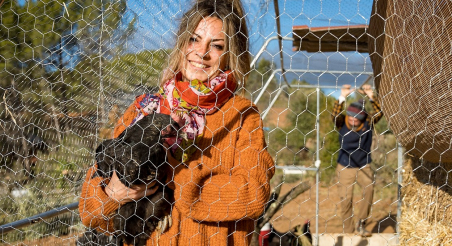To mark the International Day of Rural Women on 15th October, the Barcelona Agraria programme of the Diputació de Barcelona highlights this evolution through an interactive map that allows for exploring the sector’s reality from a gender perspective.
According to data from recent agricultural censuses, the presence of women leading agricultural holdings in the province of Barcelona has almost doubled in the last twenty years. In 1999, only 11% of farms were managed by women; by 2020, this figure had risen to 19%. This increase reflects a profound shift in a traditionally male-dominated field and underscores the increasingly prominent role of women in agricultural management.
Moreover, this growth is not merely proportional. While the total number of farms has decreased, those run by women have increased from 1,313 in 1999 to 1,613 in 2020, defying the general sectoral trend.
Growing sectors
Regarding production, women are more involved in agriculture (79%) than in livestock farming (21%). Regarding productive orientations, they are notably represented in cereal and vineyard cultivation, with 23% of farms in both sectors managed by women in 2020. Horticulture takes third place, rising from 9% in 2009 to 16% in 2020.
Viticulture has emerged as a sector with increasing female participation. In the Alt Penedès region, known for its wine production, women manage 24% of farms, the highest rate in the province. Sant Martí Sarroca is the municipality with the most women-led farms, boasting 50 female farmers.
Education is key
The average age of female farm owners is 62, three years older than their male counterparts, highlighting the need to encourage generational renewal with a gender perspective. However, 17% of farms managed by individuals under 45 are led by women, a figure that did not exceed 9% in 1999.
The indicators also reveal a promising reality regarding education. Fourteen per cent of young female farmers have a university degree in agricultural studies, surpassing the 10% of their male counterparts. Additionally, 67% of women under 45 have received some form of agricultural training, either through general courses or vocational training. Only 33% of young women working in agriculture rely solely on practical experience.
Challenged ahead
Despite the significant progress made over the past two decades, important challenges remain regarding women’s farming activities in the province. Farms managed by women tend to be smaller, with an average size of 16 hectares compared to 24 hectares for those managed by men. On farms smaller than 10 hectares, female representation reaches 22%.
Differences are also observed in the economic scale of farms managed by women. The agricultural and livestock production of female farmers in the province has experienced remarkable growth, increasing by 60% over the last decade to reach €107 million in 2020. However, this figure is lower than the production of farms managed by men, which stands at €967 million. This disparity can largely be attributed to structural factors within the sector, such as the lower presence of women in livestock farming, which tends to have a higher economic output.
The data from recent agricultural censuses reveal a disparity in female presence based on the legal structure of the farms. Women have a significantly higher participation in farms managed by individuals (84%) compared to those managed by legal entities (16%). However, it is worth noting the positive evolution in management preferences: while only 6% of agricultural businesses were led by women in 1999, the current figure of 16% represents a substantial advance over the past few decades.
Looking ahead
The recent agricultural censuses underline the increasingly important role of women in the agri-food sector in Barcelona's province. This growing participation is key to achieving a more sustainable, inclusive and equitable model. The presence of women in areas such as viticulture, cereals and vegetable gardens, together with their commitment to training, anticipates a more diverse and sustainable future for agriculture in the territory.
However, the road to full equality is still long. The gaps in the size of the holdings and in the economic dimension indicate that there are still barriers to overcome. The challenge for the coming years will be not only to increase the female presence in the sector, but also to ensure that women have access to the same opportunities and resources as their male counterparts.
About Barcelona Agraria
Barcelona Agraria is the programme of the Barcelona Provincial Council aimed at promoting the sustainability of the agri-food sector in the region and contributing to climate change mitigation. Initially co-financed by the European Union through the European Regional Development Fund (ERDF) and within the framework of the BCN Smart Rural project, this initiative aligns with the 'From Farm to Fork' campaign, which lies at the heart of the European Green Deal.
For more information on the agri-food development initiatives driven by Barcelona Agraria, please contact Sònia Callau, head of the Territorial Agrarian Directorate of Barcelona Provincial Council and coordinator of the program.




